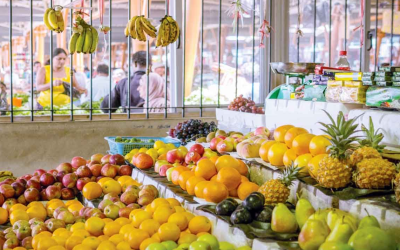 The agro-ecology initiative plays a crucial role in improving food security and promoting sustainable agricultural practices. It prioritizes the health and well-being of consumers. By focusing on methods that respect the environment and enhance biodiversity, the initiative aims to create a resilient food system. This food system benefits both people and the planet.
The agro-ecology initiative plays a crucial role in improving food security and promoting sustainable agricultural practices. It prioritizes the health and well-being of consumers. By focusing on methods that respect the environment and enhance biodiversity, the initiative aims to create a resilient food system. This food system benefits both people and the planet.
A significant aspect of the initiative is its commitment to inclusivity. It actively involves women, youth, and people with disabilities in agricultural activities. This ensures that diverse voices and experiences contribute to sustainable practices. Furthermore, this approach not only empowers these groups but also enriches the agricultural sector with varied perspectives and skills.
Moreover, the collaboration between UNDP-GEF-SGP and the Association Mauricienne d’Agroécologie has an ambitious long-term vision. By 2040, they aim for 50% of the fruits and vegetables produced for the domestic market to be cultivated using agroecological methods. This goal reflects a strong commitment to sustainability. It emphasizes the importance of environmentally friendly practices that lead to a healthier food supply and improved livelihoods for farmers.
In addition, the agro-ecology initiative focuses on creating long-lasting change. It aims to reduce the environmental impact of traditional farming methods by promoting agroecology. This shift to sustainable agriculture can reduce reliance on harmful chemicals and support biodiversity.
Furthermore, the initiative fosters a sense of community and cooperation. It encourages collaboration among farmers, local organizations, and government agencies. Ultimately, these efforts contribute to a more sustainable and equitable agricultural landscape. This collective approach ensures that the benefits of agroecology extend beyond the immediate community.
In conclusion, the agro-ecology initiative not only transforms agricultural practices but also helps build a more resilient, sustainable, and inclusive food system.


